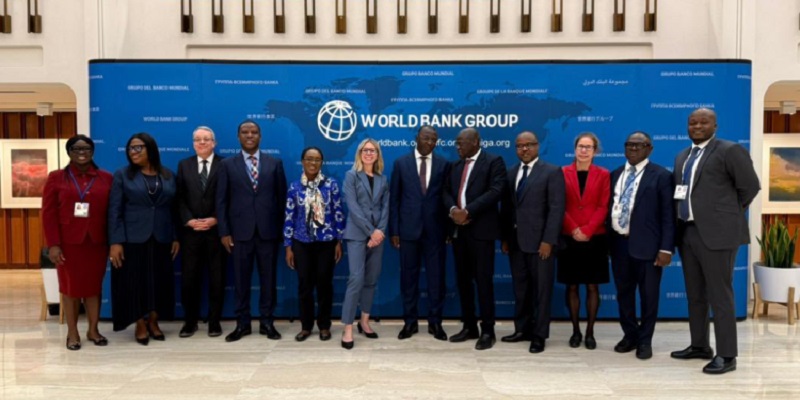Ghana has signed a US$260 million deal with the World Bank to help solve the US$1.2 billion energy sector losses and other inefficiencies in the sector.
The deal, under the Energy Sector Recovery Programme, comprises a US250m credit metering procurement package and a US$10m clean cooking grant component in line with the Bank’s Programme for Results (PforR) initiative.
Per the agreement, the World Bank would be facilitating the procurement of the one million metres through competitive bidding, with the clean cooking component seeing an advance of 20 per cent financing requirement initially.
All these are tied to targets, including a transmission of energy generation in the most cost-efficient way, transparency in the Cash Waterfall Mechanism, and optimal reduction in losses in ECG revenue collection.
It is also expected that there would be a drastic reduction in the country’s metering gap, and the integration of the new metres into the billing system to improve commercial loss.
Speaking at the signing event, Dr Mohammed Amin Adam, Finance Minister, said the government would leave no stone unturned in ensuring efficiency in the energy sector and increasing financial viability by doing things differently.
He charged the Electricity Company of Ghana (ECG) to end the high electricity distribution losses and low collection rates in the energy sector, which in 2024 alone has made the government to spend approximately, GHS18 billion (US$1.2 bn) in financing energy sector shortfalls.
“The cash waterfall mechanism must be adhered to… and we won’t compromise,” he said and tasked the ECG to ensure that all collections made went into the system and redistributed to beneficiaries to build confidence in the investor community.
“Through this project we have an opportunity to build a robust energy infrastructure that will remain the backbone of a thriving economy. Ultimately, our objective is not to only stabilise our energy sector but also enhance the quality of life for our citizens,” Dr Amin Adam said.
Mr Collins Adomako-Mensah, Deputy Energy Minister, pledged to meet all the timeliness and targets in the project implementation, adding that a team had been established to monitor all beneficiary agencies.
Dr Robert Taliercio O’Brien, World Bank Country Director, Ghana, Liberia, and Sierra Leone, said the programme would help improve energy sector efficiency and financial performance.
He expressed concern about US$1.2bn shortfalls in the sector, which was more than the average disbursement the Bank provided to Ghana on an annual basis, calling for compliance to the objectives of the deal.
Mr Asjish Khanna, Protective Manager, West and Central Africa Energy, World Bank, noted that the financing arrangement under the agreement would provide better results because it was tied to performance.
“This is better because rather than releasing money not achieving the results, this format of financing ensures that money is disbursed only after the achievement of results,” he said.
“We are asking ECG’s financial accounts audited to be disclosed annually at a particular time every year, once they disclose it in year one, a certain money would be,” he stated.
“Similarly, everyone believes that ECG collection and losses are not optimal, so they have a target for reducing the losses, depending on how much losses are reduced every year, again, a certain portion of money is released,” he added.
Mr Khanna said those measures were to ensure that Ghanaians felt they have the meters with the right consumption, while ECG reduced its fiscal drain, saying, “efficiency in ECG, better service to people.”
Source: citinewsroom.com

